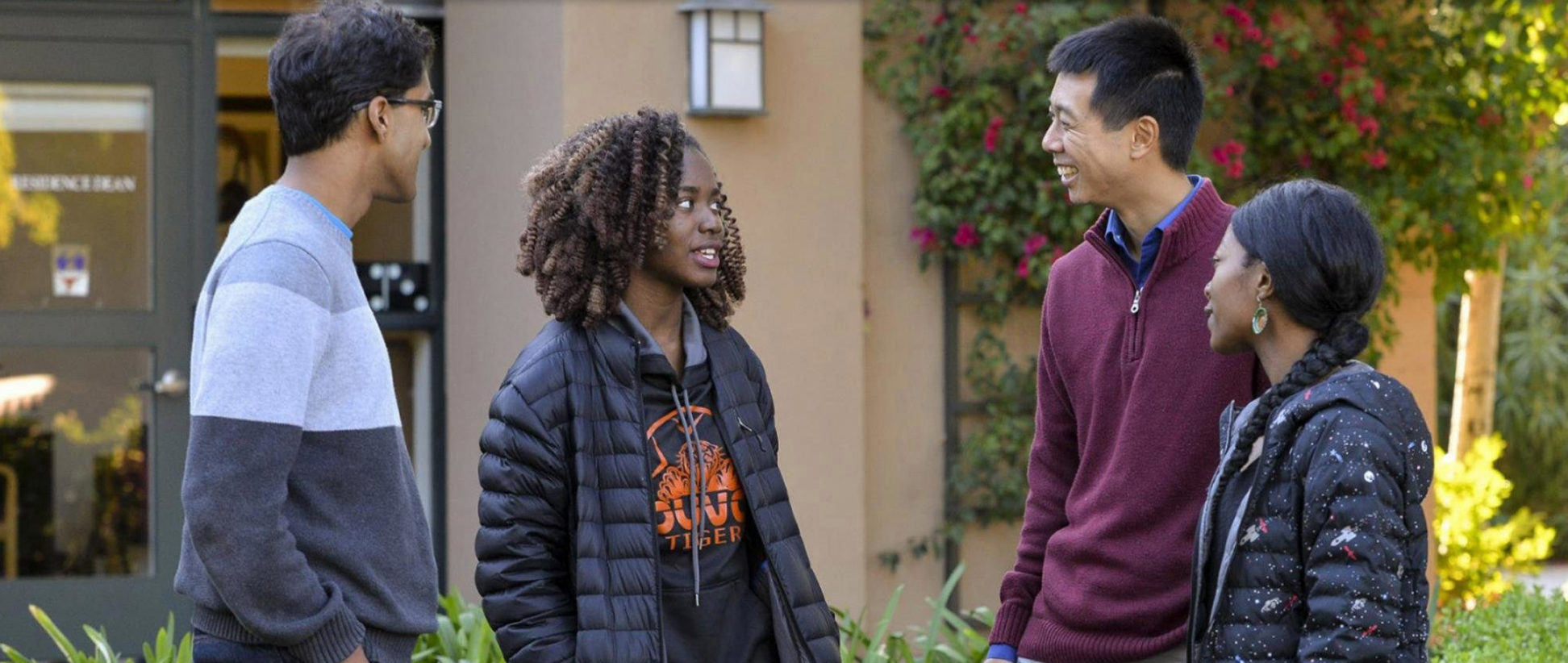Is it time to rethink your plans?
Dean of Academic Advising Louis Newman offers advice to Stanford undergraduates on applying the lessons learned during the pandemic to the academic and life choices ahead.

Image credit: L.A. Cicero
You’re finally back on campus. Your classes are in person. You are reconnecting with classmates, joining student organizations and beginning to put this long pandemic-induced disruption behind you.
So, now what?
How has the pandemic affected your priorities? How do you plan to use your remaining years at Stanford? What might you do differently now, as the most intense period of the pandemic appears to be receding?
How you answer these and similar questions will depend to some degree on how the pandemic affected you and those closest to you. Some of you, faced with the prospect of virtual classes, chose to take a leave of absence. Some of you were back home in your childhood bedroom, where your internet access may have been unreliable and your social connections to your friends were infrequent or unsatisfying. Still others of you found places to rent with friends in appealing locations, where you continued taking your Stanford classes over Zoom while creating your own small, supportive communities. And some of you took on jobs to help support family members who lost theirs or became caretakers for those who became sick.
Given such varied experiences, here is some advice you may want to consider.
Many of you missed out on five quarters of living and learning on campus, including sophomores who missed that very valuable frosh year at Stanford when special new connections first form. You are likely feeling some pressure to make up for lost time. It’s a natural impulse, but I encourage you to resist it. The fact is that you can’t cram 18 months of missed extracurricular activities, research opportunities, internships or socializing into your remaining time at Stanford. Doing so is likely to send your stress level spiking and unlikely to give you what you seek. Consider, instead, accepting reality, grieving those losses and making your peace with a situation that upended most of our lives significantly. This is neither the first nor the last time when you’ll need to adapt to circumstances that unexpectedly disrupt best-laid plans.
I also understand that some students are considering a co-term as one of the best ways to fold in an extra year at Stanford. The choice to pursue graduate work – when and where and in what field – is important and will have lifelong consequences for your career. But be sure you’re thinking through your options with an eye to the future, not to the past.
As for new frosh and transfers, consider that this is still not a “normal” year at Stanford. We’ve made major progress since winter quarter 2020 when we fully shifted into lockdown and a new era of virtual learning, but it may still be a while before you can expect to have a full-fledged “Stanford experience” as most students knew pre-pandemic. In the meantime, making connections – with peers, faculty and staff – may be a bit more awkward or difficult, given current face covering and distancing protocols. Try to be patient with yourselves and with the University, which is doing everything it can to restore normal operations as quickly as health and safety guidance permits. Take advantage of the opportunities you have (which are still plentiful) and make plans as best you can, without getting too attached to any of them. If there’s anything we’ve learned through this pandemic, it’s that resilience and flexibility are ever more important virtues.
Ultimately, many undergraduates may be contemplating entirely new goals as a result of this global pandemic. Perhaps you’re newly motivated to go into public health or virology, to tackle the racial and economic inequities that have become so glaringly obvious, or to combat the use of social media to spread misinformation and conspiracy theories. I encourage you to consider these impulses very seriously. Disruptive events are often the catalysts for pursuing new directions, on both personal and social levels. By all means, seize this extraordinary historical moment, pursue new interests and use your education to address the pressing needs of our time.
Of course, as with all life decisions, you should discuss these newfound goals with trusted mentors, faculty members and academic advisors. Stanford’s mission statement underscores that the purpose of your education is “to promote the public welfare by exercising an influence on behalf of humanity and civilization.” Those words have never been more timely. Allow the needs of this moment to shape your aspirations, and let those aspirations shape the duration of your Stanford journey, wherever you may be along that path.
Is it time to change your plans? Perhaps. But however this pandemic has impacted you, it has unquestionably given you good reason to stop and reflect – on what you want to do with your life, how you want to invest in the remainder of your time at Stanford and how your education will enable you to achieve your greatest goals.
Louis Newman is Stanford’s dean of advising and associate vice provost for undergraduate education within VPUE.